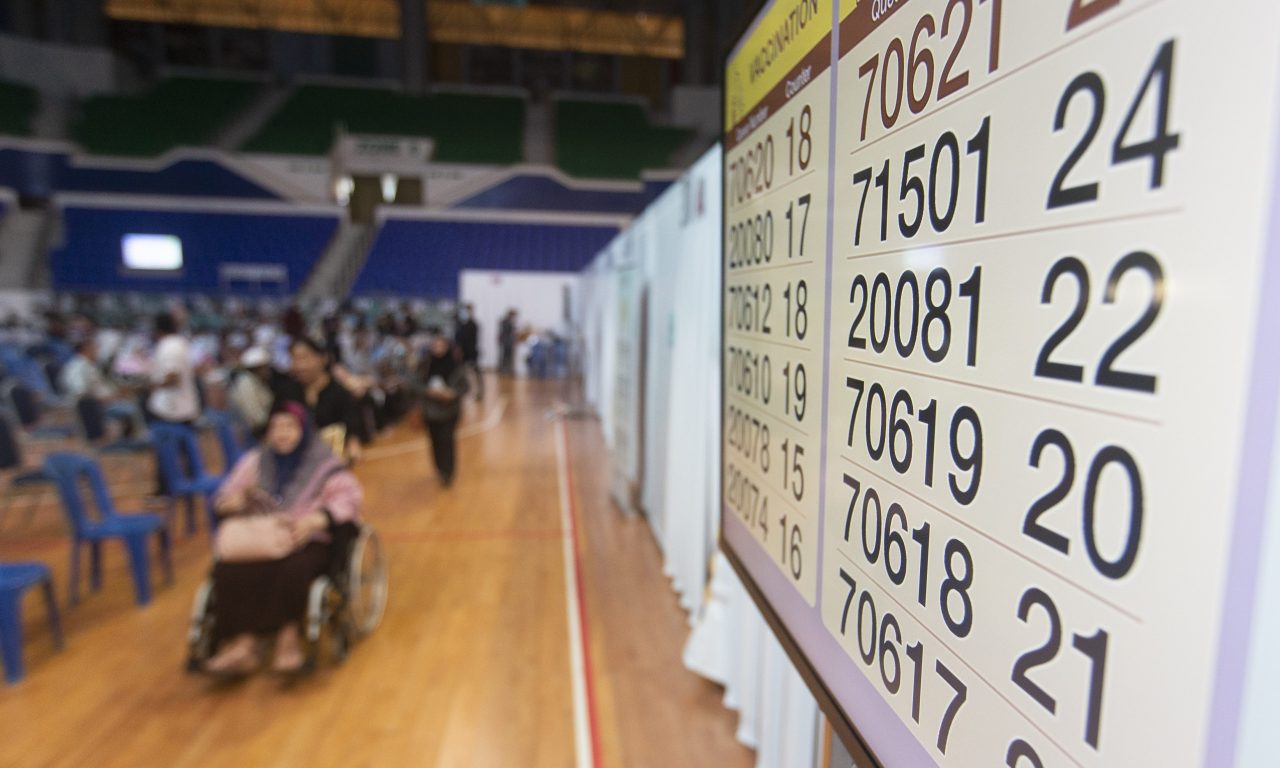BANDAR SERI BEGAWAN – The government has imposed its toughest COVID-19 restrictions yet as Brunei broke its record of new daily coronavirus cases with 42 infections on Monday.
Announcing the tightened COVID-19 curbs in a press briefing, health minister YB Dato Seri Setia Dr Hj Mohammad Isham Hj Jaafar said non-essential employees in the public and private sectors are required to work from home and residents cannot step outside their home without a valid reason.
Only two persons from each household are permitted to buy groceries and other essential items in the next two weeks.
Public gatherings are banned, with the exception of non-coronavirus related funerals that are limited to 15 people.
Wedding solemnisations are capped at five people and only two family members can visit elderly parents at a time.
YB Dato Dr Hj Mohd Isham said limiting the movement of people meant that there are fewer chances of people getting infected or spreading the infection.
“We don’t want a situation where we cannot go anywhere or [enter] full lockdown,” he said in response to a question on the decision to tighten COVID-19 restrictions.
The new public health control measures come two days after Brunei detected its first community cases in over a year as the government tries to contain the spread of COVID-19.

Highest daily COVID-19 tally
The health ministry confirmed the highest number of new COVID-19 cases in a day on Monday, including 38 locally transmitted cases and four infections imported from Africa.
The new cases represented a 147 percent jump from 17 infections on Sunday, raising the total COVID-19 tally to 406.
Two new clusters have been identified – Chung Hua Middle School in Kuala Belait (CHMS KB) and Authority for Building Control and Construction Industry (ABCi).
CHMS KB has become the largest active cluster with 29 infections, while five cases have been linked to the ABCi cluster.
The TOTAL cluster, which was reported on Sunday, grew to 11 cases after four additional infections were recorded.
The minister said the source of infection of the two new clusters could not be ascertained.
“There must be a breach of SOP. We need to interview these people a few times to determine where they’ve been.
“If anyone knows about smuggling routes, that would be helpful. The virus doesn’t just appear, it must have come from somewhere, whether it’s through the borders or there was a SOP breach,” he added.
Asked whether the health ministry will revise its safety protocols, YB Dato Dr Hj Mohd Isham said SOP will be further strengthened as there is a high probability of non-compliance.
“We are also thinking of reducing the number of health monitoring centres, so that it’s easier to monitor,” he continued.
Hotels across the country have been designated as health monitoring centres to isolate travellers who just arrived in Brunei.
With the growing number of cases, the ministry plans to place asymptomatic COVID-19 patients or those with mild symptoms at a makeshift facility if the National Isolation Centre (NIC) runs out of beds.
Ninety-eight patients are currently being treated at the NIC, which has 296 beds.

MoH mulls setting up more vaccination centres
The ministry is also considering opening more vaccination centres to address the long waiting times.
Responding to a question on the possibility of introducing a drive-thru vaccination site, YB Dato Hj Mohd Isham said it is not safe even though it is practised in other countries.
Having a specific vaccination centre allows the ministry to maximise its workforce and reduce the waste of vaccines, the minister said.
“That’s why we need the booking system so that healthcare workers know how many people they can expect and not delay the process.
“The long wait is because there were many walk-ins. Understandably, people are a bit anxious but you have to wait. Just let us do the work,” he added.
The ministry is also studying the possibility of inoculating adolescents against COVID-19, but adults are being prioritised to get the jab now.
“We do not have enough vaccines at the moment. We are still awaiting the delivery of Pfizer vaccine, but whatever we have, we need to vaccinate as many as possible.
“The possibility is there, some countries have [vaccinated teenagers], but we need to study in detail the effects,” the minister said.

Who is considered an essential worker?
Essential staff who are not required to work from home (WFH) include frontliners in the health, security, hospitality and transport sectors.
Other workers deemed essential are those employed in eateries, retail businesses, oil and gas and downstream sectors, construction, agrifood and forestry sectors.
Border control workers and employees in the utilities sector are also exempted from the WFH order.
Second Minister of Finance and Economy YB Dato Seri Setia Dr Hj Mohd Amin Liew Abdullah said companies will need to determine essential workers based on their operations.
“We will monitor to make sure people don’t abuse it. We are trying to limit the number of people going out.
“This is short of a total lockdown, we still allow people to go out, just not in big numbers. The working from home requirement is to try to reduce the number of people on the move,” he said during the press briefing.
The minister added that some government agencies have divided their teams to work in two different locations, so that one group can still work if the other team members are infected with COVID-19.
Moreover, YB Dato Hj Mohd Amin said financial assistance to businesses affected by COVID-19 may be extended as part of the economic stimulus package, which was launched in April last year.
Deferment of bank loan repayments have been extended until the end of September 2021 but may be prolonged further, the minister said.
Previous announcement of fiscal measures to mitigate the impact of COVID-19 included waiving of bank charges, wage subsidy and social security contributions.

